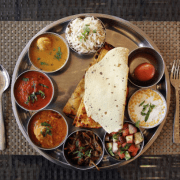Food and culinary experiences have become an integral part of travel and tourism. From exploring local cuisine to attending cooking classes, travelers are increasingly looking for ways to incorporate food into their trips. This essay will explore the role of food and culinary experiences in travel and tourism, discussing six main points. Specifically, the role of food in culture, food tourism, food safety, sustainability, and culinary education, as well as its impact on travel experiences.

The importance of food in culture
Food is an important part of culture, and it can tell us a lot about a place. Every culture has its own unique cuisine, and exploring local dishes can be a great way to learn about a new place. Eating local dishes can also be a great way to connect with locals and learn more about their culture. For example, in Japan, sushi is a traditional dish that is eaten as part of a meal or as a snack. Eating sushi can be a great way to learn more about Japanese culture and connect with locals.
The impact of food on travel experiences
Food can have a huge impact on travel experiences. Eating local dishes can be a great way to get to know a new place and its culture. It can also be a great way to experience the local flavors and ingredients that make up a particular cuisine. For example, in Italy, pizza is a popular dish that is made with fresh ingredients like tomatoes, cheese, and herbs. Eating pizza in Italy can be a great way to experience the flavors of the region and get to know the local culture.
The rise of food tourism

The rise of food tourism has been driven by travelers who are looking for unique and authentic experiences. Food tourism is all about exploring local cuisine and discovering new flavors. It can involve visiting restaurants, attending cooking classes, or even taking part in food-related activities like wine tastings or brewery tours. Food tourism is becoming increasingly popular as travelers look for ways to incorporate food into their trips.
The importance of food safety
Food safety is an important consideration when it comes to travel and tourism. It is important for travelers to be aware of the risks associated with eating local dishes. This includes researching restaurants before eating there, avoiding street food vendors, and being aware of any food-borne illnesses that may be present in the area.
The importance of sustainability
Sustainability is an important consideration when it comes to food and travel. It is important for travelers to be aware of the environmental impact of their food choices and to take steps to reduce their carbon footprint. This includes eating locally sourced food, avoiding single-use plastics, and supporting sustainable restaurants and businesses.

The importance of culinary education
Culinary education is an important part of travel and tourism. Learning about different cuisines can be a great way to explore new cultures and gain a deeper understanding of the local cuisine. Culinary education can involve attending cooking classes, visiting local markets, or even taking part in food-related activities.
Conclusion:
In conclusion, food and culinary experiences have become an integral part of travel and tourism. From exploring local cuisine to attending cooking classes, travelers are increasingly looking for ways to incorporate food into their trips. This essay has explored the role of food and culinary experiences in travel and tourism. Food plays a significant role in culture, travel experiences, food tourism, food safety, sustainability, and culinary education. Travelers can gain a deeper understanding of different cultures around the world when they understand the role of food in travel and tourism.















